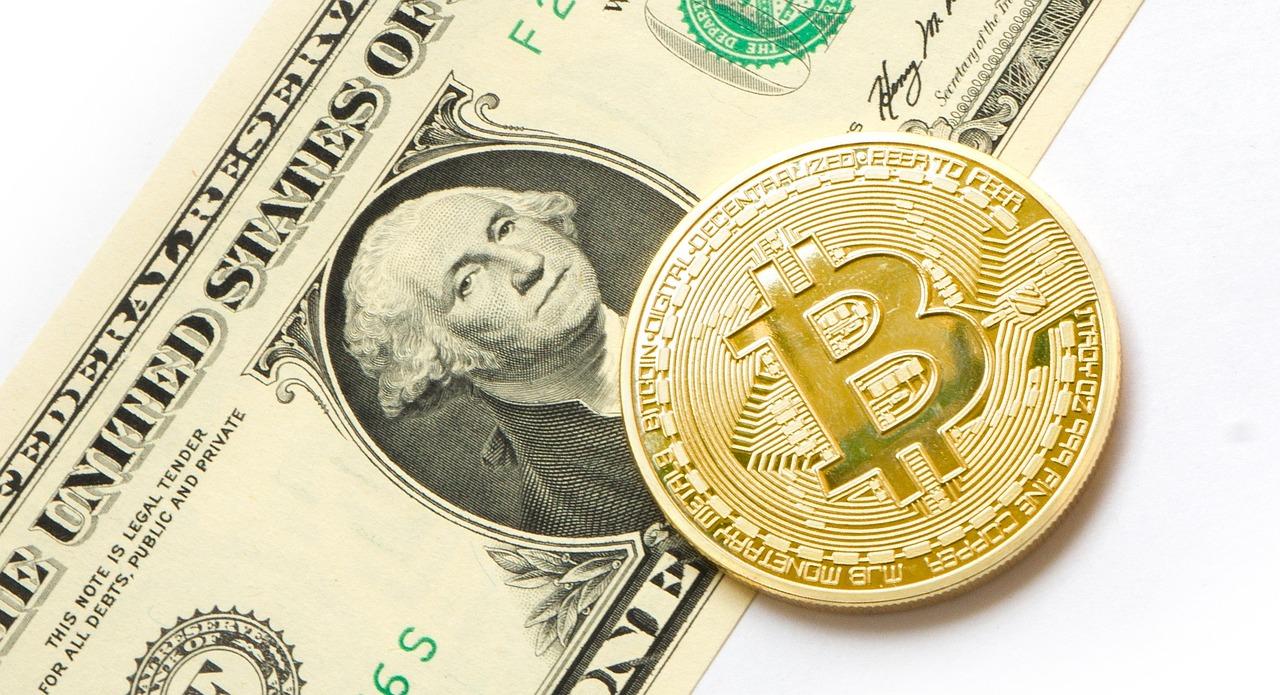Written by Lawyer Liu Zhengyao
introduction
A recent case involving the use of virtual currency for foreign exchange has garnered considerable attention. On July 16th, the Shanghai Pudong New District People's Court announced a major case involving illegal virtual currency exchange, originally sentenced in March of this year. The case involved a total of 6.5 billion yuan! In this case, the parties involved used Tether (USDT) as an intermediary to help individuals convert RMB into foreign currency.
Why have judicial authorities been cracking down on illegal foreign exchange transactions involving virtual currencies in the past two years? The reason is simple: China implements a foreign exchange control system, limiting ordinary citizens to a limited annual quota of US$50,000. Want to exchange more? It's possible, but you'll have to wait in line at the bank, fill out a mountain of forms, and explain the purpose of your transaction.
The emergence of virtual currencies can objectively undermine domestic foreign exchange controls, creating opportunities for illegal arbitrage. Judicial authorities will naturally monitor and crack down on the use of virtual currencies for foreign exchange trading and illegal currency conversion. As a web3 lawyer, I would like to discuss the criminal logic and defense recommendations for crimes involving illegal virtual currency operations within the framework of mainland China's laws and regulations, hoping to benefit web3 practitioners and fellow lawyers.

I. Case Brief: Major Currency Exchange Case Reported by Pudong Court
According to a report by CCTV.com, citing the China Times, at the end of 2023, Ms. Chen from Shanghai needed to send money to her daughter abroad. However, due to my country's annual foreign exchange limit of US$50,000 per person, she contacted a so-called "currency exchange company." The company arranged for Ms. Chen to transfer RMB to Company A's account. Shortly thereafter, her daughter overseas received the equivalent amount in foreign currency. Of course, the exchange company charged a certain percentage of the money as a fee.
According to disclosed case information, at the time of the incident, Yang, Xu, and others, through the manipulation of domestic shell companies, facilitated cross-border fund transfers for unspecified clients using stablecoins (such as Tether, USDT) and reaped illicit profits, resulting in illegal operations totaling 6.5 billion yuan. The specific model involved: After the domestic companies collected RMB from clients, this RMB was not transferred abroad through banks or underground moneylenders. Instead, it was used by Yang, Xu, and others to purchase virtual currencies such as USDT. Upon receiving funds from domestic clients, the "currency exchange company" would notify its overseas counterparts to convert their "inventory" of foreign currency to the overseas clients at the market exchange rate. This model is often referred to as "trading exchange." In cryptocurrency-friendly regions (e.g., those that allow local exchange of virtual currencies for fiat currencies), this trading model of RMB against local foreign currencies using virtual currencies is well-established.
II. The threshold for conviction of illegal foreign exchange operations
(1) Legal provisions
The crime of illegal business operation, stipulated in Article 225 of my country's Criminal Law, is derived from the crime of speculation and profiteering. Anyone with even a passing familiarity with the domestic criminal defense community will undoubtedly be familiar with this offense—it's known as a "pocket crime" in the economic crime field. It primarily regulates four types of conduct: first, unauthorized illegal operation of "exclusive" or "manufactured" goods or restricted goods; second, the sale of import and export licenses or import and export certificates of origin; third, the illegal operation of securities, futures, or insurance businesses, or the illegal engagement in fund payment and settlement services; and fourth, "other illegal business activities that seriously disrupt market order."
(2) Provisions of Judicial Interpretations
Of the four types of behavior mentioned above, the first three are easy to understand. The key lies in the fourth type , "other illegal business operations that seriously disrupt market order ." In the early days, due to the lack of unified standards, judicial practices in various places were relatively chaotic, and some relatively new business models were arbitrarily identified as illegal business crimes. In 2011, the Supreme People's Court issued the "Notice on Accurate Understanding and Application of Relevant Issues on "National Provisions" in the Criminal Law" (Fa Fa [2011] No. 155), which clearly required courts at all levels to strictly grasp the scope of application of Article 4 (i.e., the aforementioned "other illegal business operations that seriously disrupt market order") when hearing cases of illegal business crimes:
First, the "state regulations" in "violation of state regulations" refer to the laws and decisions enacted by the National People's Congress and its Standing Committee, the administrative regulations formulated by the State Council, the administrative measures prescribed, and the decisions and orders issued.
Second, for the application of "other illegal business activities that seriously disrupt market order", if there is no clear judicial interpretation, instructions should be sought from the Supreme People's Court step by step.
(3) Specific threshold for conviction
According to the "Interpretation of the Supreme People's Court and the Supreme People's Procuratorate on Several Issues Concerning the Application of Law in Handling Criminal Cases of Illegal Fund Payment and Settlement Business and Illegal Foreign Exchange Trading", the common criteria for determining " serious circumstances " (imprisonment of not more than five years or detention) are: first, the amount of illegal business operations is more than 5 million yuan; second, the amount of illegal income is more than 100,000 yuan.
There are two common criteria for determining " particularly serious circumstances " (imprisonment for more than five years): one is that the amount of illegal business operations is more than 25 million yuan; the other is that the amount of illegal income is more than 500,000 yuan.
The so-called "amount of illegal operations" refers to the amount of funds used by the parties in illegally buying and selling foreign exchange, illegally exchanging foreign exchange, and converting it into cash; the "amount of illegal income" is simply the profit made by the parties.
3. Why does buying and selling USDT for foreign currency constitute illegal business operations?
Returning to the topic of this article, let's first look beyond the business model of Yang, Xu, and others. In practice, one of the situations in which illegal business operations are convicted for trading USDT is using USDT to illegally trade foreign exchange, illegally exchange foreign exchange, or trade foreign exchange in disguised form. As mentioned earlier, this transaction can be broken down into two major steps:
- First, the client gives RMB to a "domestic shell" and exchanges it for USDT;
- Second, overseas gangs convert USDT into US dollars and give them to customers' overseas accounts.
While each transaction appears to be independent, it effectively converts RMB into US dollars. This practice is known as "counter-trading": RMB is deposited domestically and US dollars are withdrawn overseas, but no formal channels are used or approved. This evades national foreign exchange regulations and anti-money laundering monitoring systems. This operation effectively constitutes a disguised foreign exchange exchange, an illegal foreign exchange transaction . If the aforementioned threshold for criminal liability is met, it constitutes illegal business operation.
However, in practice, there is also a situation where a mainland entity is solely responsible for selling USDT to customers and collecting RMB from them. The customers exchange USDT for foreign currency through their own channels, and the mainland entity selling USDT is unaware of this, or even if aware , does not participate. In this case, we believe that the mainland entity does not constitute illegal business operations. The specific reasons are as follows.

IV. Lawyer's Defense Suggestions
As a web3 criminal defense lawyer, based on the actual crypto cases I have represented, I would like to briefly summarize the defense strategies of criminal defense lawyers for cases involving illegal operations of virtual currencies.
First, in a judicial environment heavily reliant on confessions, defense lawyers need to examine the client's confessions to see if their actions are "business-oriented" or "profit-making." If the domestic team denies any illegal foreign exchange transactions, then the so-called "evidence" obtained by the investigative authorities through telephone conversations with overseas exchange groups (i.e., collecting USDT from clients and converting it into foreign currency) cannot be used as criminal evidence unless there is other objective evidence to support this claim.
Secondly, the review of objective evidence requires professional knowledge. For example, whether the blockchain transfers involved in the purchase and sale of USDT, the KYC information of the centralized virtual currency exchange trading account, the time, flow, and amount of virtual currency transactions, etc. match. To give a simple example, an overseas virtual currency exchange cooperates with the mainland investigative authorities to provide the registration information of an account (the registrant's name, ID number, mobile phone number, email address, etc.), but how to ensure the authenticity and legality of the information provided by the exchange? Has there been any case of identity fraud? This requires criminal defense lawyers to also understand the specific KYC requirements of different exchanges, and even the relevant KYC regulations of the country/region where the overseas virtual currency exchange is located;
Finally, be cautious about specific materials produced by third-party organizations, such as forensic appraisals and audit reports. Currently, some judicial authorities adopt a completely "take-it-as-it-is" approach to third-party appraisals and audit reports, implicitly acknowledging their use as evidence in criminal charges. The defense, with the consent of the client and family, may also commission "experts with specialized knowledge" to appear in court to refute the opinions or reports issued by third parties.
Of course, if defense attorneys are familiar with current domestic regulations regarding virtual currencies and the common vulnerabilities encountered in judicial appraisals and assessments of virtual currency cases, they can also make a strong case. In my experience, new virtual currency cases are most likely to achieve breakthroughs and effective defenses in areas such as evidence and appraisal.







